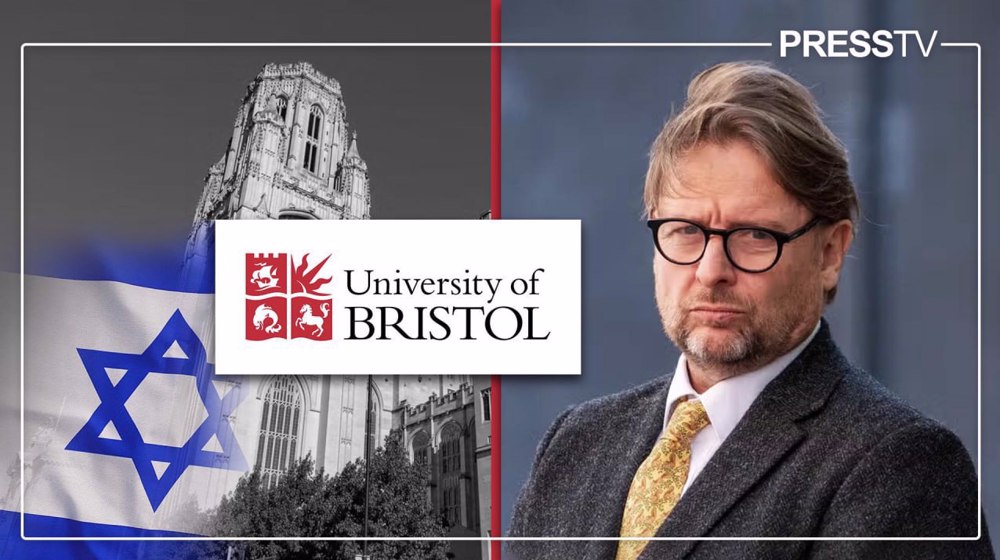
ER Editor: More on that historic UK decision to qualify a reasoned-out anti-Zionist position as a protected philosophical belief. This is a follow-up to the piece from February 6 —
UK university professor wins discrimination case for anti-Zionist views
***
Readers may also be interested in this piece from yesterday by Dr. Ramzy Baroud —
The ‘two-state solution’ is a distraction; the problem is Zionism
The problem in Palestine-Israel is not the absence of a Palestinian state, but Zionism. What is the use of a Palestinian state, if the racist, exclusivist ideology of Zionism continues to define Israel, and impose that definition on the Palestinians?
This ideology calls for the racial purity and dominance of Jews in Palestine, at the expense of the native inhabitants of the land, of course. To achieve this, millions of Palestinians have had to be forced into exile, and hundreds of thousands needed to be killed, wounded or incarcerated. Neither two states nor even one state is possible if Zionism is not entirely defeated: not revamped, not “fixed”, but eradicated.
As Palestinians are being killed in unprecedentedly large numbers in Gaza, western politicians are waking up to the necessity of a viable, independent Palestinian state. But why now? After all, it was these very politicians and their governments that either defended the Zionist state or remained silent as Israel thwarted every possibility of peaceful co-existence with the Palestinians. Theirs is not a moral awakening, but a distraction, to appear — at least before their own people — to be proactive, while Israel is systematically destroying the Palestinian people.
***
Miller’s account of his court case below reveals the senior UK academics involved to be utter fools and not trustworthy.
********
How I established anti-Zionist views should be protected under UK law
DAVID MILLER for PRESS TV
In a landmark judgement on February 5, the Bristol Employment Tribunal handed down its decision that I had been wrongfully dismissed from my position as Professor of Political Sociology at the University of Bristol.
In addition, the court found that the reasons given by the university for sacking me – that some Zionist students had been offended or claimed to feel ‘unsafe’ – were untrue.
The court determined instead that I had been dismissed for my anti-Zionist views.
And in the most significant element of the case, the court also ruled – for the first time in the UK – that anti-Zionist views as set out by me in court filings are protected as a philosophical belief under the Equality Act 2010.
The judgment stated:
The claimant succeeds in claims of direct discrimination because of his philosophical belief contrary to section 13 Equality Act 2010.
It went on:
The claimant’s anti-Zionist beliefs qualified as a philosophical belief and as a protected characteristic pursuant to section 10 Equality Act 2010 at the material times.
What this means is both that anti-Zionist views are declared by the court not to be racist and that they are “worthy of respect in a democratic society”, which is the language used in the Equality Act.
What was the anti-Zionist position I espoused and the court endorsed as protected?
First, I defined Zionism in a neutral way as an ideology that holds that a state for Jewish people ought to be established and maintained in the territory that formerly comprised the British Mandate of Palestine.
Zionists, of course, agree with this ideology. But, as the judgement put it:
[The Claimant’s] belief that Zionism (as he defines it) is inherently racist, imperialistic and colonial is based on the claimant’s analysis that it “necessarily calls for the displacement and disenfranchisement of non-Jews in favor of Jews, and it is therefore ideologically bound to lead to the practices of apartheid, ethnic cleansing and genocide in pursuit of territorial control and expansion.”
The Employment Tribunal accepted that these ideas reached the level of coherence and cogency required of protected philosophical belief.
Among the specific statements made by me, for which I was sacked, were:
“The enemy we face here is Zionism and the imperial policies of the Israeli state”;
“It’s not just a question of being allowed to say, ‘Zionism’s bad’ or ‘Zionism’s racism’ – which, of course, we should be allowed to say because it is. But it’s not just a question of that; it’s a question of how we defeat the ideology of Zionism in practice.”; and
“Zionism is and always has been a racist, violent, imperialist ideology premised on ethnic cleansing. It is an endemically anti-Arab and Islamophobic ideology. It has no place in any society”.
These views are now to be regarded as protected anti-Zionist statements with no connection to anti-Semitism.
As the judgment stated:
“The Claimant explained, in his witness statement, that his opposition to Zionism is not opposition to the idea of Jewish self-determination or of a preponderantly Jewish state existing in the world, but rather, as he defines it, to the exclusive realization of Jewish rights to self-determination within a land that is home to a very substantial non-Jewish population.”
The case therefore establishes a very important precedent that will surely be relied upon and built upon in future employment cases.
And it declares to employers everywhere – that no matter how loudly Zionists scream and shout – it is not permissible to sack anti-Zionists for their views, which are henceforth protected in law.
Furthermore, the judgment drives a coach and horses through the long-promoted Zionist talking point that anti-Zionism is the “new antisemitism”.
This is a view that underpins the controversial International Holocaust Remembrance Alliance Working Definition of Antisemitism, which must now be put to serious question.
I hope and believe that in the future this will be seen as a turning point in the battle to end the racist and genocidal ideology of Zionism.
But how did I win this case? A key element was that the witnesses provided by the University of Bristol did not support the case the university was making.
Indeed they fatally undermined it.
The concessions made by the University of Bristol witnesses were firstly by Professor George Banting, a retired Dean of the Faculty of Biomedical Sciences.
Under cross-examination, he was shown the university policy on investigations which emphasizes getting to the truth and testing evidence.
He was then taken through example after example where he admitted he had not properly taken into account the evidence that I and my team had submitted and he admitted that he had, in effect, treated the evidence from the Zionist student activists credulously, even though there was plenty of evidence that they had provided contradictory or false evidence.
Banting caused some amusement in court when toward the end of his testimony he disclosed that he was something of an anti-Zionist himself:
“I would be more aligned with the position that Professor Miller puts forward in terms of Zionism being a racist ideology and settler colonialism.”
Similar admissions were made by Professor Jane Norman the Dean of Health Sciences at Bristol. She admitted that she lacked knowledge of the Zionist movement and of sociology, subjects where she acknowledged I was more knowledgeable than she was.
She had claimed in her letter of dismissal that the Union of Jewish Students was simply a faith society and thus by inference not Zionist – a case that stretched credulity, but which also indicated her partiality.
She also reluctantly admitted that she had not properly analyzed the contending evidence in the case in her written decision to sack me. Norman has subsequently been promoted to the second top job at the University of Nottingham.
These concessions were enough to show that I had been wrongly dismissed.
As the judgment put it: “The claimant succeeds in his claim for unfair dismissal pursuant to section 98 Employment Rights Act 1996”
But both Banting and Norman also conceded other points that fatally compromised the university case. The university and specifically Professor Norman had claimed that the reason I had been sacked was because Zionist students had been offended or felt ‘unsafe’ as a result of hearing my anti-Zionist views.
But they both confirmed under cross-examination by the British Palestinian barrister Zac Sammour that the key reason that I was sacked was precisely because of the anti-Zionist content of my views and not my comments about Zionist student groups.
This was enough to show that I had been dismissed specifically for my anti-Zionist views.
But the most dramatic moment was when the university’s Deputy Principal Professor Judith Squires took the stand. Squires is a professor of political theory by background, so should be more familiar with the issues under discussion.
She has been prominent at the University of Bristol in its responses to the Black Lives Matter movement and the call for divestment in relation to slavery.
She can be seen here delivering a speech in which she calls for the “eradication” of racism, a position which, as I said at the tribunal, I wholeheartedly endorse. As the most senior witness from the university she, of all people, had to support the overall university case that my views were not “worthy of respect in a democratic society”.
And Squires did from the outset, but immediately after she was asked if she thought that my views were views ‘akin to Nazism’. She seemed confused by the question as if she had not realized that affirming the university case entailed this position.
But she eventually agreed. At that moment she was lost.
My barrister proceeded to demonstrate that by asking about a hypothetical case where Anglo-Saxons in Britain forced 75 percent of non-Anglo-Saxons to leave and go and live in Cornwall or Wales, then denied the remaining 25% rights in jobs, education and voting, would that be racist? “Yes”, said Professor Squires.
And he went on if no non-Anglo-Saxon could return, but any Anglo-Saxon, anywhere in the world, could come and live in Britain. Would that be racist? “Yes” And, the barrister went on would it be wrong for a Professor to say that Anglo-Saxonism is racism? And that it should be opposed? “No”, said Professor Squires.
The University of Bristol, in other words, undermined and eventually destroyed its own case in court.
David Miller is the producer and co-host of Press TV’s weekly Palestine Declassified show. He was sacked from Bristol University in October 2021 over his Palestine advocacy.
Source
Featured image source, Israeli flag: https://a-z-animals.com/blog/flag-of-israel-history-meaning-and-symbolism/
************

••••
The Liberty Beacon Project is now expanding at a near exponential rate, and for this we are grateful and excited! But we must also be practical. For 7 years we have not asked for any donations, and have built this project with our own funds as we grew. We are now experiencing ever increasing growing pains due to the large number of websites and projects we represent. So we have just installed donation buttons on our websites and ask that you consider this when you visit them. Nothing is too small. We thank you for all your support and your considerations … (TLB)
••••
Comment Policy: As a privately owned web site, we reserve the right to remove comments that contain spam, advertising, vulgarity, threats of violence, racism, or personal/abusive attacks on other users. This also applies to trolling, the use of more than one alias, or just intentional mischief. Enforcement of this policy is at the discretion of this websites administrators. Repeat offenders may be blocked or permanently banned without prior warning.
••••
Disclaimer: TLB websites contain copyrighted material the use of which has not always been specifically authorized by the copyright owner. We are making such material available to our readers under the provisions of “fair use” in an effort to advance a better understanding of political, health, economic and social issues. The material on this site is distributed without profit to those who have expressed a prior interest in receiving it for research and educational purposes. If you wish to use copyrighted material for purposes other than “fair use” you must request permission from the copyright owner.
••••
Disclaimer: The information and opinions shared are for informational purposes only including, but not limited to, text, graphics, images and other material are not intended as medical advice or instruction. Nothing mentioned is intended to be a substitute for professional medical advice, diagnosis or treatment.







Leave a Reply